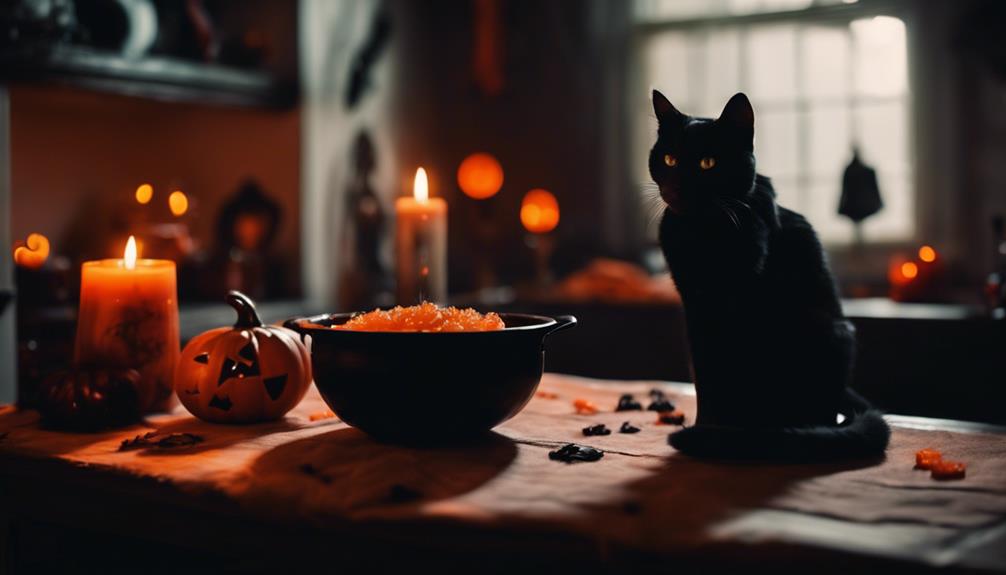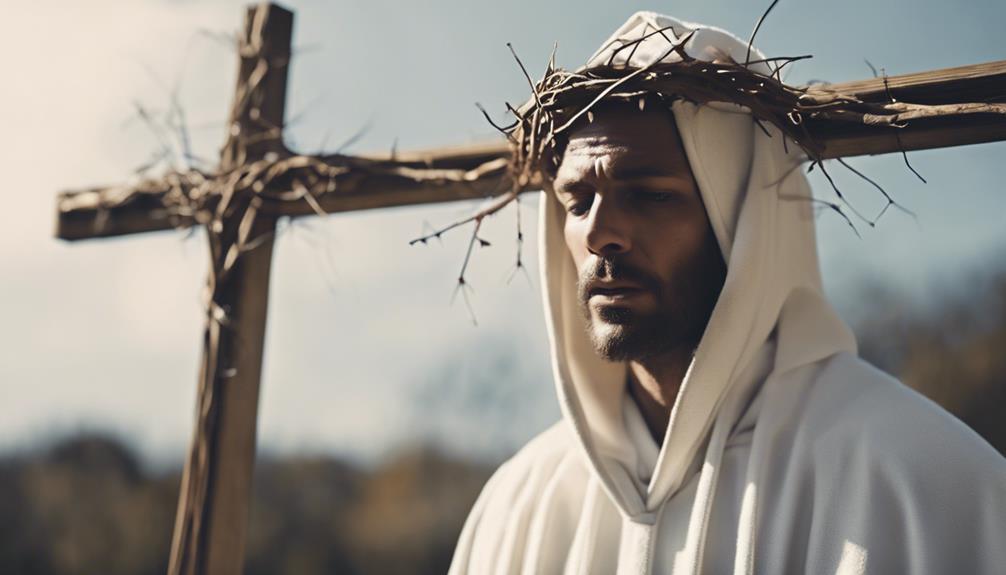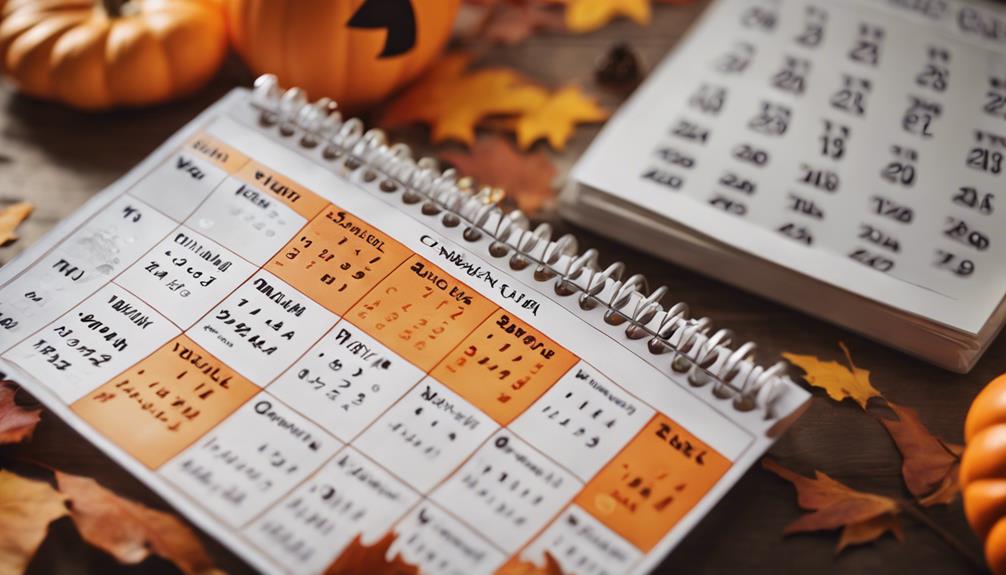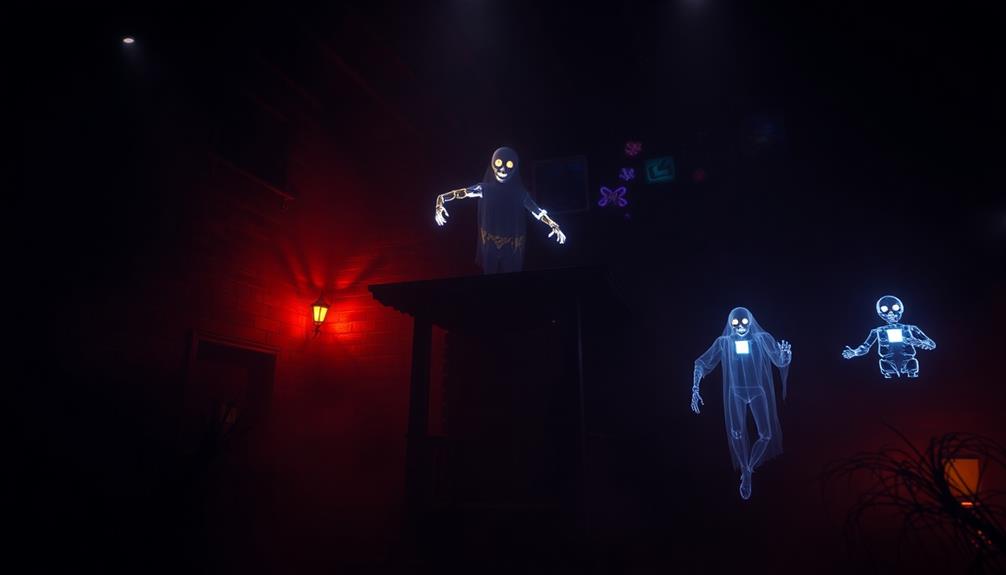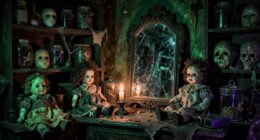Halloween is not the Devil's birthday, although some connect it to that belief. The origin of Halloween dates back to the Celtic festival of Samhain, celebrating the harvest's end. Over time, it combined Christian and pagan elements. The folklore linking Halloween to the Devil originated from Scandinavian beliefs. Commercialization has influenced this association, overshadowing Halloween's true roots. Today, Halloween is a festive holiday with costumes and fun activities. Further insights are available.
Key Takeaways
- Halloween has no historical or religious connection to the Devil's birthday.
- The association likely comes from folklore and superstitions.
- Commercialization has reinforced the link between Halloween and the Devil's birthday.
- The emphasis on costumes and spooky themes has perpetuated this myth.
- Halloween's original meaning has been overshadowed by modern traditions.
Origins of Halloween
The origins of Halloween can be traced back to the ancient Celtic festival of Samhain, marking a significant shift in the seasonal cycle. Samhain was a time when the Celts believed that the boundary between the living and the dead was at its thinnest, allowing spirits to easily take place in the mortal domain. This festival, occurring at the end of the harvest season and the beginning of winter, was a time of both celebration and solemn remembrance.
During Samhain, the Celts lit bonfires and donned costumes to ward off roaming spirits. This tradition eventually evolved over time, incorporating Christian influences that linked Halloween with All Saints' Day and All Souls' Day. These Christian associations added a layer of solemnity to the festivities, emphasizing the remembrance of departed loved ones.
As the centuries passed, various customs like trick-or-treating, costume parties, and pumpkin carving became intertwined with Halloween, creating the vibrant and diverse celebration known today. Despite its spooky connotations, Halloween has become a community-centered event celebrated in many cultures worldwide.
Religious Perspectives on Halloween

Some Christian denominations associate Halloween with the Devil's birthday due to its pagan roots and supernatural themes. Different sects within Christianity hold varying beliefs about Halloween, leading to diverse interpretations and practices.
While Halloween has evolved into a commercialized holiday focused on costumes and parties, its origins carry a mix of Celtic, Roman, and Christian influences shaping its complex cultural significance.
Religious Views on Halloween
When considering religious perspectives on Halloween, you may find a spectrum of beliefs regarding its spiritual implications. Some religious viewpoints link Halloween to the Devil's Birthday due to its historical connections to pagan rituals.
Certain Christian groups perceive Halloween's focus on the supernatural and occult as being in line with the Devil's influence, leading them to caution against partaking in Halloween activities. The idea of Halloween as the Devil's Birthday may come from the belief that dark forces are more active during this time.
Please be aware that religious opinions on Halloween vary greatly; while some see it as harmless fun, others approach it from a more theological or spiritual standpoint. Ultimately, individuals within different religious traditions may interpret Halloween differently, leading to a wide range of views on the holiday's significance.
Spiritual Significance of Halloween
Considering the diverse interpretations religious groups offer, the spiritual significance of Halloween from a religious perspective reveals a tapestry of beliefs and practices. Some Christian denominations associate Halloween with the Devil's Birthday, citing its historical ties to pagan rituals and dark themes. However, this belief isn't universally accepted and is more of a cultural notion rather than a religious doctrine.
Halloween traces its origins back to ancient Celtic festivals like Samhain, which marked the shift from the harvest season to winter and blurred the boundary between the living and the dead. Over time, the commercialization of Halloween has shifted its focus away from its spiritual roots, leading to a variety of interpretations and customs worldwide. While some people view Halloween as a time for fun and dressing up, others approach it cautiously or avoid it altogether due to perceived connections with the supernatural and occult.
The spiritual significance of Halloween, therefore, varies greatly depending on individual beliefs and cultural influences.
Halloween Traditions and Customs
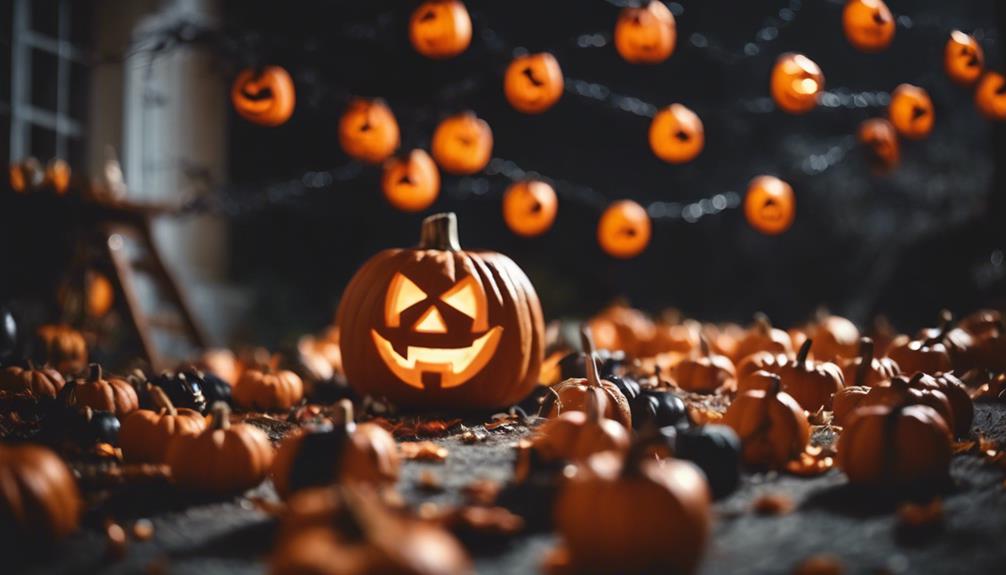
Halloween traditions and customs, rooted in ancient Celtic practices, have evolved over time into a festive blend of fun and superstition. Originating from the Celtic festival of Samhain, which marked the end of the harvest season and the beginning of winter, Halloween has seen various customs develop. The practice of wearing costumes and carving pumpkins, for instance, was believed to ward off evil spirits on this spooky night. Over the years, Halloween has also become intertwined with Christian traditions such as All Saints' Day and All Souls' Day, blending religious observances with pagan rituals.
Despite modern misconceptions associating Halloween with the Devil's Birthday, there's no historical basis for this claim in Celtic or Christian origins. Instead, Halloween is primarily a time for communities to come together, enjoying the festivities and the sense of togetherness it brings. So, whether you're trick-or-treating, attending a costume party, or simply carving pumpkins, remember that Halloween is all about fun and celebration.
History of Halloween Celebrations
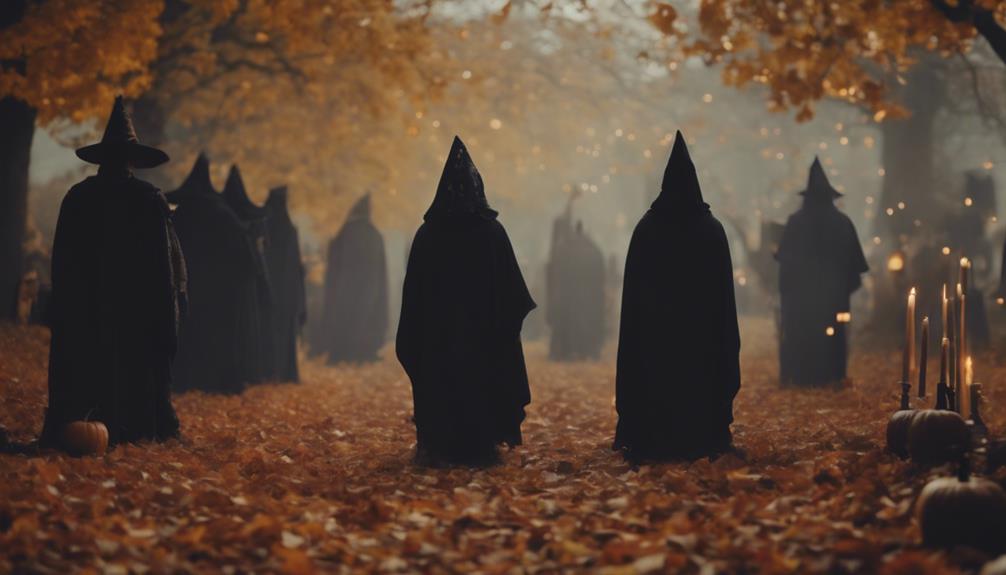
Throughout history, cultures around the world have marked the changing seasons with various celebrations and rituals. The history of Halloween celebrations can be traced back to ancient Celtic festivals like Samhain. These festivals were a way to honor the end of the harvest season and the beginning of winter. Over time, Halloween traditions have evolved, blending elements from Christian and pagan rituals. Today, Halloween is primarily known for costumes, trick-or-treating, and festive decorations. Understanding the origins of Halloween can provide insight into its cultural significance and modern practices.
| Celtic Festivals | Christian Influence | Modern Halloween |
|---|---|---|
| Samhain celebrations | All Saints' Day | Costumes |
| Harvest season | All Souls' Day | Trick-or-treating |
| Honoring the dead | Festive decorations |
The Connection to the Devil
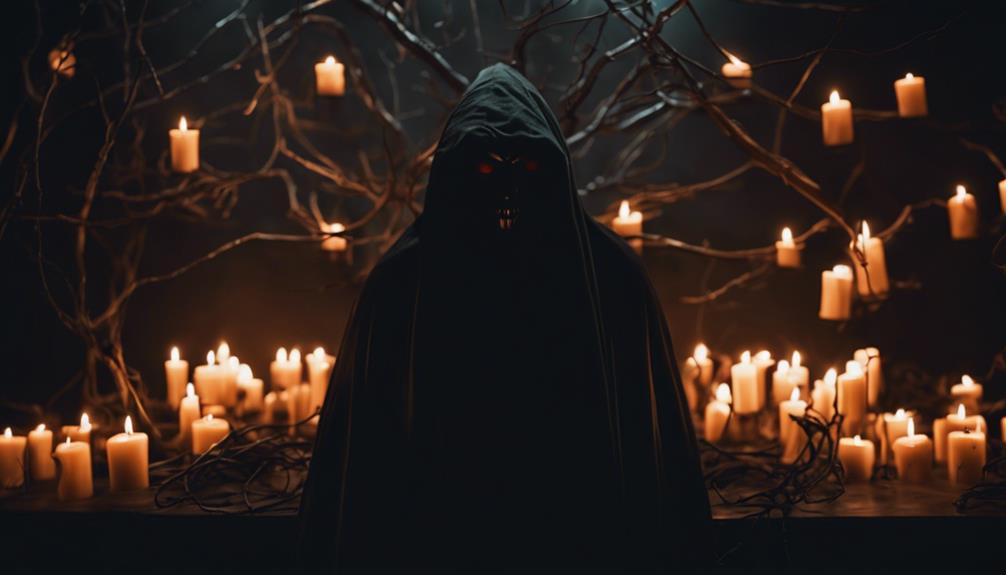
Without delving into the world of superstition, one can find a curious link between Halloween and the notion of the Devil's Birthday in Scandinavian and Danish folklore. In Danish traditions, there's a belief that the Devil was born on Halloween, giving rise to the idea that it's his birthday. This concept has been documented in Oluf Nielsen's book 'Kjøbenhavns Historie og Beskrivelse' from 1885, shedding light on the historical roots of this association. For centuries, Scandinavian folklore has intertwined Halloween with the Devil's Birthday, shaping cultural practices and superstitions surrounding the holiday.
The connection between Halloween and the Devil's Birthday adds an intriguing layer to the historical and mythological storytelling surrounding this spooky celebration. It highlights how folklore and beliefs from different cultures can intersect, creating unique narratives that continue to fascinate people to this day. As you explore the origins of Halloween, understanding this link to the Devil in Scandinavian and Danish folklore provides a deeper insight into the rich tapestry of traditions that have contributed to the holiday's evolution.
Halloween in Pop Culture
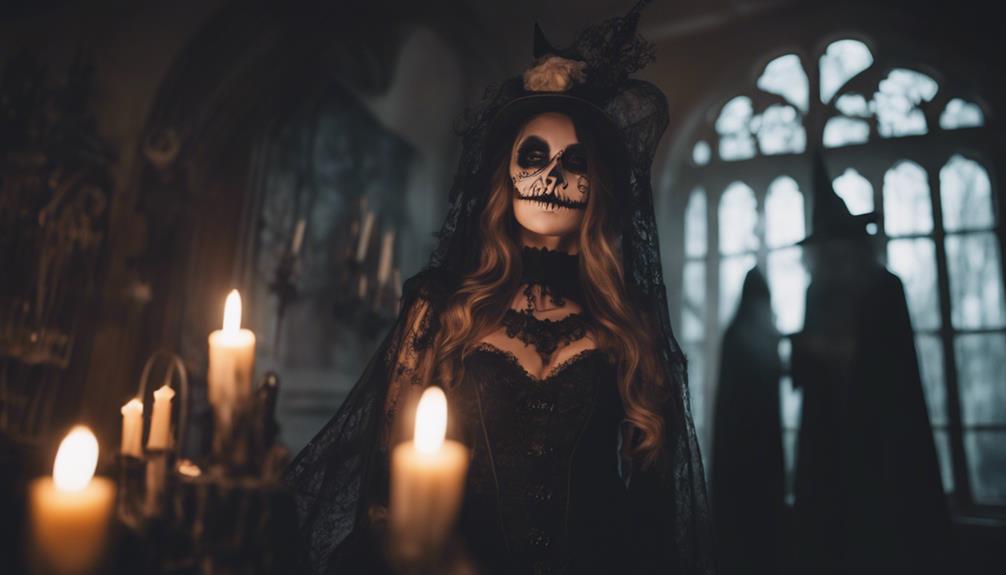
In popular culture, the portrayal of Halloween as the Devil's Birthday has influenced various forms of media and storytelling, adding a dark and eerie element to the holiday.
This concept has been ingrained in some folklore and literature, where Halloween is linked to the Devil's Birthday, creating a sinister vibe.
The idea of Halloween as the Devil's Birthday is a common theme in horror stories and movies, with authors utilizing it to craft a spooky atmosphere in their works.
This association between Halloween and the Devil's Birthday adds a chilling touch to the holiday in popular culture, drawing on the historical origins of Halloween and its ties to supernatural beliefs.
The connection between Halloween and the Devil's Birthday reflects a deeper layer of mystery and intrigue surrounding the holiday, making it a captivating subject for various forms of entertainment.
Debunking the Myth
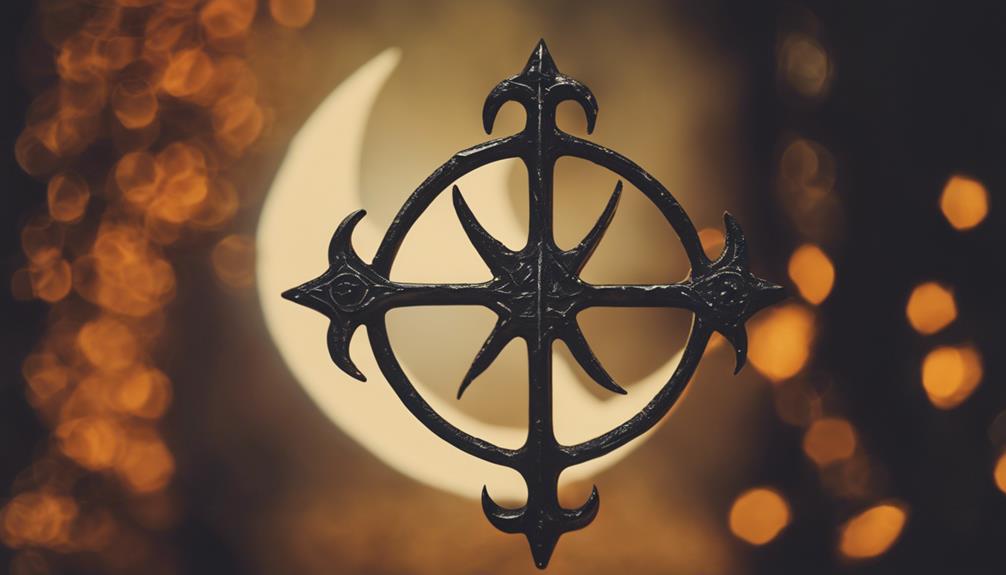
To dispel the unfounded belief that Halloween is the Devil's Birthday, understanding the true historical origins of this holiday is essential. Contrary to popular misconceptions, Halloween, also known as All Hallows' Eve, doesn't have any historical or religious connection to being the Devil's Birthday. Its roots lie in ancient Celtic traditions and the Christian observance of All Saints' Day.
The notion of Halloween as the Devil's Birthday likely originates from folklore and superstitions rather than factual information. Traditionally, Halloween is a time to commemorate the deceased and has evolved into a secular celebration in many cultures, featuring costume parties and trick-or-treating activities.
Impact of Commercialization
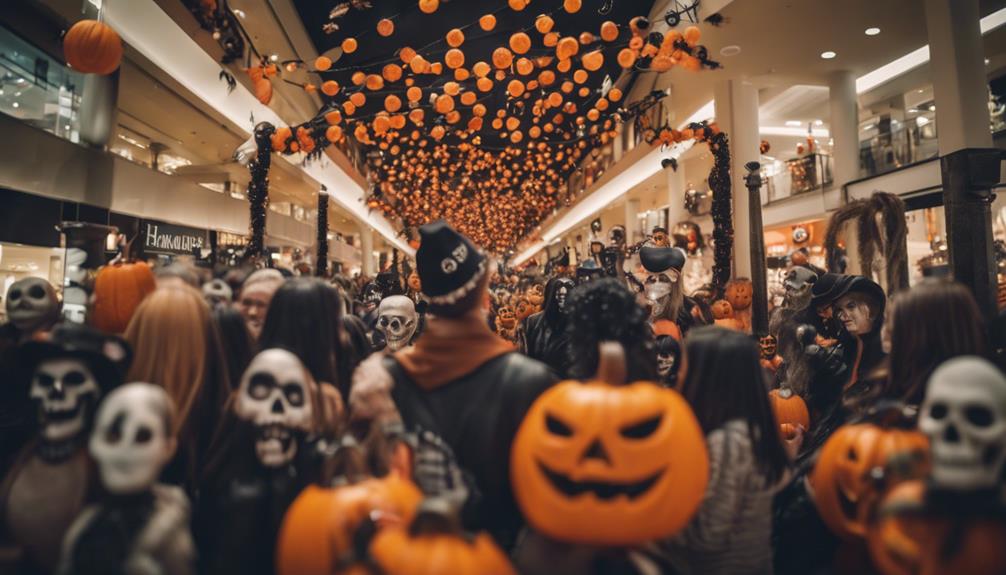
The commercialization of Halloween has greatly altered its perception and cultural significance, impacting how the holiday is viewed and celebrated. Here are some ways in which commercialization has influenced Halloween:
- Association with the Devil's Birthday: The commercialization of Halloween has led to it being linked with the concept of the Devil's Birthday in certain folklore and traditions.
- Overshadowing of Original Meaning: Some argue that the emphasis on costumes, candy, and spooky themes has overshadowed the original sacred or spiritual significance of Halloween.
- Secular Celebration: The commercial aspects of Halloween, such as decorations and merchandise, have contributed to the perception of Halloween as a secular celebration associated with the Devil.
- Reinforcement through Popular Culture: The portrayal of Halloween in movies and TV shows often reinforces the idea of it being a night connected to the supernatural and darker entities.
Celebrating Halloween Today
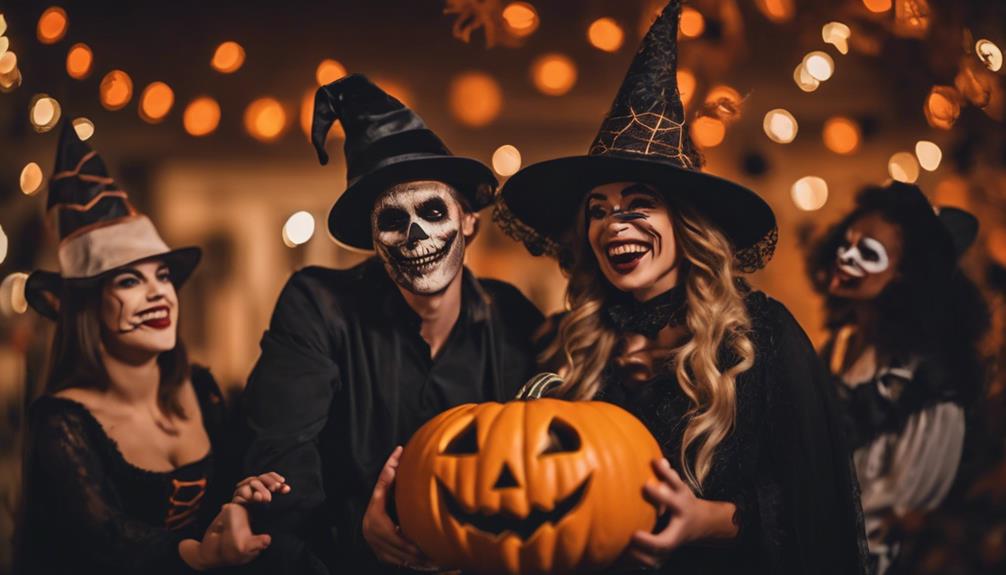
Today, Halloween is widely celebrated with costumes, spooky decorations, and trick-or-treating activities. It has become a fun and festive holiday that brings people of all ages together to enjoy the thrill of the season.
The modern celebration of Halloween incorporates a mix of traditions from various cultures, making it a unique and exciting occasion for many around the world.
Modern Halloween Traditions
How do modern Halloween traditions blend Celtic, Roman, and Christian influences to create the festive celebration as it's widely recognized today?
- Celtic Roots: The ancient Celtic festival of Samhain marked the end of the harvest season and the beginning of winter, where people believed the boundary between the living and the dead blurred. This belief influenced the modern Halloween focus on ghosts and spirits.
- Roman Influence: The Romans added their touch with the festival of Pomona, celebrating the goddess of fruit and trees. This is where the tradition of bobbing for apples may have originated, now a popular Halloween game.
- Christian Adaptations: As Christianity spread, All Saints' Day was established to honor saints and martyrs. The eve of this day, known as All Hallows' Eve, eventually merged with Samhain traditions, giving rise to Halloween.
- Contemporary Celebrations: Today, Halloween is a vibrant mix of customs including dressing up in costumes, going trick-or-treating, visiting haunted houses, and carving pumpkins. Parties, parades, and horror movie marathons have become staples of modern Halloween festivities, adding to the diverse tapestry of this celebration.
Cultural Significance Today
In contemporary society, Halloween has transformed into a festive occasion embraced by people of all ages for its playful and imaginative spirit. It's no longer solely tied to ancient beliefs or superstitions but is now a popular secular holiday celebrated on October 31st each year.
Halloween today is known for its vibrant costumes, exciting trick-or-treating adventures, spooky haunted houses, and creatively festive decorations. The holiday has evolved into a community-based event that brings neighborhoods together for fun and entertainment.
Many individuals partake in the Halloween festivities without associating them with religious or supernatural connotations, focusing instead on enjoying the camaraderie and creativity that the day offers. Whether you're dressing up in a costume, carving pumpkins, attending themed parties, or simply indulging in Halloween treats, the cultural significance of Halloween today lies in its ability to spark joy, foster community connections, and provide a platform for imaginative expression.
Conclusion and Final Thoughts

Concluding the examination of Halloween as the Devil's Birthday in Scandinavian folklore, it's important to reflect on the lasting influence of these tales on cultural traditions and storytelling.
- Cultural Legacy: The concept of the Devil's Birthday continues to fascinate audiences, adding richness to the cultural tapestry of Scandinavia.
- Literary Impact: Authors and screenwriters have drawn inspiration from this folklore, weaving intricate narratives that explore themes of darkness and superstition.
- Modern Interpretations: Contemporary works by authors like Lisa explore diverse genres, showcasing the enduring appeal of folklore in literature.
- Reader Engagement: For those interested in exploring these themes further, Lisa's bibliography offers a detailed guide to her works, inviting readers to immerse themselves in the intrigue of Devil's Birthday tales and beyond.
Frequently Asked Questions
What Does the Bible Say About Celebrating Halloween?
When it comes to celebrating Halloween, the Bible doesn't directly address it since it's a more recent holiday.
Some Christians have concerns about Halloween due to its ties to death and the occult, while others see it as harmless fun.
The Bible encourages focusing on what's good and pure.
Ultimately, whether to join in Halloween activities is a personal choice based on individual beliefs.
Is Halloween a Devil's Night?
Halloween isn't considered Devil's Birthday in Scandinavian folklore. The Devil's Birthday folklore is unique to Danish and Norwegian traditions, focusing on the devil's visit to earth.
In these cultures, Halloween and the Devil's Birthday are separate concepts. While Halloween has its own customs, the Devil's Birthday is distinct in Scandinavian culture.
The two aren't synonymous, each holding its own significance in folklore and traditions.
Is December 11 the Devil's Birthday?
You might wonder if December 11 is the Devil's birthday. This belief is rooted in Scandinavian folklore, linking the date with the devil in Danish and Norwegian traditions.
While not universally accepted, historical texts and cultural practices have perpetuated this idea. Think of it like a piece of folklore that adds intrigue to the historical tapestry of the region.
The association with the Devil's birthday on December 11 is a fascinating aspect of Scandinavian heritage.
Is It Okay for Christians to Celebrate Halloween?
It's completely okay for Christians to celebrate Halloween. While some may have concerns about its origins, many view it as a fun and harmless holiday.
It's important to remember that the way you choose to participate is a personal decision. Whether you decide to join in the festivities or opt for an alternative event, what matters most is staying true to your beliefs and values.
Ultimately, enjoy the holiday in a way that aligns with your faith.
Conclusion
To sum up, Halloween isn't the devil's birthday. The notion of Halloween being linked to the devil is a myth that has been disproved by historians and religious scholars.
In reality, Halloween has its origins in ancient Celtic traditions and has transformed into a lively and festive holiday enjoyed by millions worldwide.
An intriguing fact is that Americans collectively spend an estimated $9 billion on Halloween each year, making it one of the most commercially successful holidays.
